Research and investigation has shown that the local greenhouse industry is partly responsible for the pollution of the surface and drinking water resources. The chemical residues found in the water could often be traced back to horticulture. "Especially chemical crop protection products and products to sanitise the greenhouses and the end of a production cycle turned out to have a big impact on the environment", said Luuk Runia of Asian Perlite Industries. "In a lot of the water samples for example, traces of chemicals which are used to control soil-borne nematodes, soil fungi, and other weed and diseases could be found."
In order to change this and decrease the environmental footprint of the Malaysian greenhouse industry, Runia's company has introduced soil steaming. This is a sustainable solution to decrease the use of chemical soil disinfectants. "We showed local growers that soil steam sterilisation is not only better for the environment, but also way more effective and saves on cost."
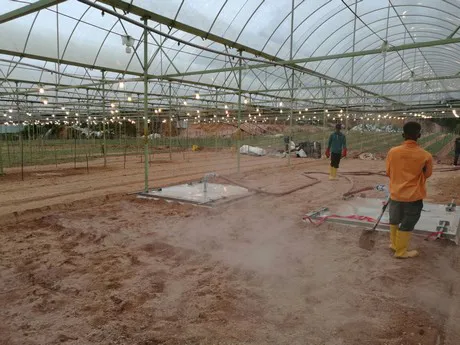
Asian Perlite Industries has teamed up with Marten Barel to develop tailor made steam units for the Asian/Pacific industry and became a distibutor. After a first introduction, they listened to the feedback of the growers to adapt and optimise the system according to their needs. “We are constantly improving the units in order to increase the efficiency and user-friendliness.”
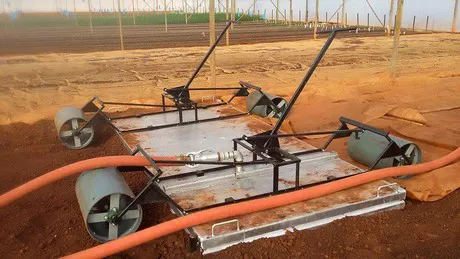
Efficient
Runia explained that many of the Southeast Asian greenhouse growers became interested in the new technology as soon as they learned that better profits could be made with soil steaming.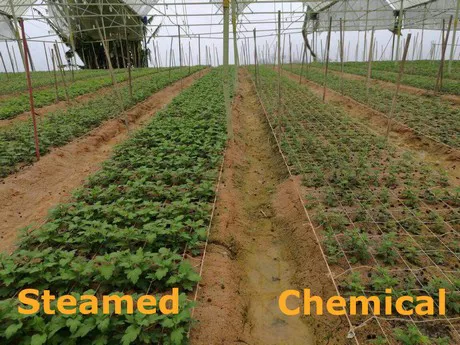
"Soil steaming is about 30 to 40 % less expensive than chemical disinfection. After the investment in the steam unit is made, the grower does no longer has to buy any of the expensive chemical disinfection products. It is also more efficient as soil diseases can build up a resistance against chemicals, but they can not build up a resistance against steam, but at the same time you do not exhaust the soil. This on its turn, results in a stronger growth of the new crop and more and better production."
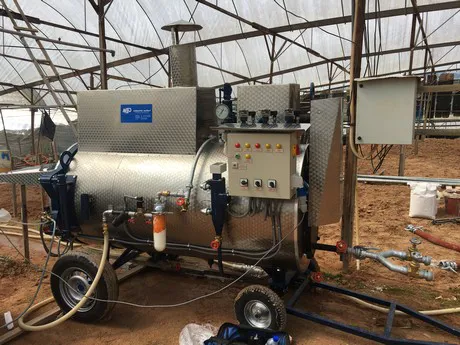
Higher production
Another benefit of the soil steaming is the speed. "Chemical disinfection is time consuming and after treatment you can't grow anything for 10 to 14 days. With steaming however, you can plant a new crop the next day. In this way, the grower can continue his production and produce more efficient. It is also much more safer for the workers, they do no longer risk to become be poisoned or become intoxicated. Products can also be harvested the next day." 
Frank Hermans and Luuk Runia of Asian Perlite at the Horti Asia trade show in Bangkok last week. The Horti Asia always provides always a great change to sit down with the Dutchman, who settled down in Malaysia's Cameron Highlands horticultural region about 20 years ago. They see that the industry around them is growing up, becomes more aware of responsible production and decreases the use of chemicals.
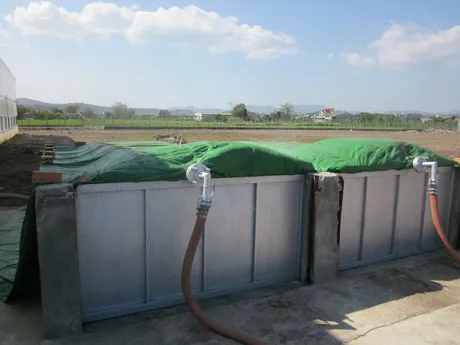
Reuse of coco peat
"We now have customers all across Southeast Asia, Australia and New Zealand. From a big tobacco grower in Indonesia towards a seed breeder in Vietnam. In the Malaysian Cameron Highlands we have several flower growers using the units to disinfect their soils, next to this there are also growers who use these units to disinfect their substrates as there is a big shortage of quality coco substrates. It is an expensive substrate, which is why these growers steam and sterilise their coco peat after each crop.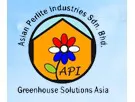 For more information:
For more information: Asian Perlite Industries Sdn. Bhd.
72B Persiaran Camellia 4
39000 Tanah Rata,
Cameron Highlands
Pahang, Malaysia
+60135305566
www.ghsasia.com
info@ghsasia.com
